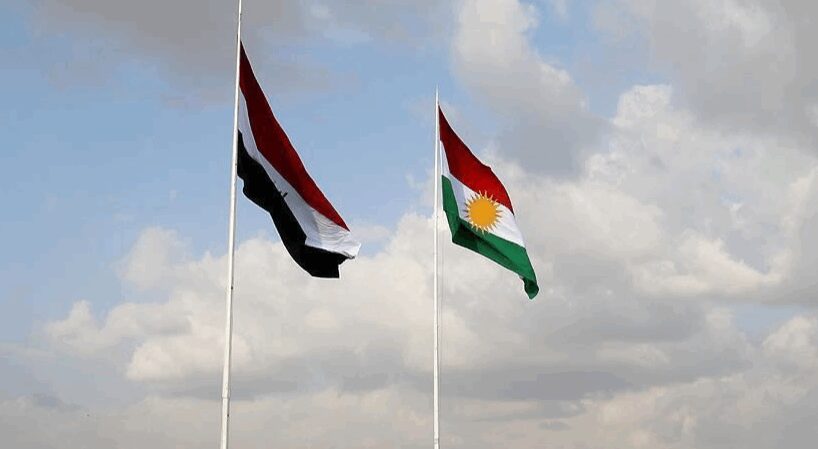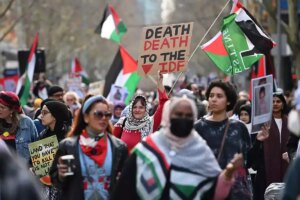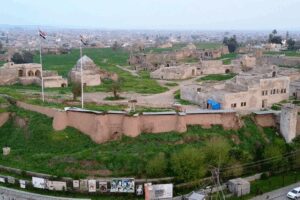
2025-07-28T18:46:39+00:00
font
Enable Reading Mode
A-
A
A+
Shafaq News
For two decades, promising
opportunities for cooperation between the Iraqi Government and the Kurdistan
Regional Government (KRG) in Erbil have consistently been lost. A lack of
unified vision and an accumulation of political crises have undermined efforts
to build a stable and prosperous Iraq. This persistent deadlock has stifled
national progress and deepened economic instability and political uncertainty
for the Iraqi people.
The Unfulfilled Promise of the
Constitution
The 2005 federal constitution, which
recognized the Kurdistan Region as a federal entity, was seen as a landmark
opportunity to shape a democratic, multi-ethnic Iraq. Yet Baghdad’s
centralizing approach and intra-Kurdish party rivalries hindered its full
implementation. Rather than uniting the country, the constitution became a
source of dispute and political leverage.
The 2017 Kurdish independence
referendum, though a bold assertion of regional will, highlighted the limits of
Iraq’s federal system. While the vote did not alter Iraq’s territorial
integrity, it demonstrated to the KRG the importance of adhering to the constitution
to preserve its existing gains, despite Baghdad’s uneven commitment to its
terms.
Post-ISIS Hopes and Economic Friction
Iraq’s victory over ISIS offered
another chance to promote national unity through shared sacrifice. However,
lingering political and financial disagreements again took precedence,
preventing the KRG from capitalizing on its role in the fight. The Kurdistan
Region’s diplomatic reach and economic potential—especially in
tourism—positioned it as a possible success model within Iraq. But recurring
tensions with Baghdad, compounded by fragmentation within Kurdish leadership,
limited this potential.
One key flashpoint remains the
obstruction of oil exports from the Kurdistan Region. Rather than fostering
economic cooperation, it became a recurring source of tension, dragging both
governments into repeated crises. The inability to jointly manage Iraq’s most
vital resource reflects a deeper institutional dysfunction.
Similarly, the Region’s agricultural
capacity—strong enough to position it as Iraq’s breadbasket—has been undercut
by federal policies, adding to the frustration in Erbil.
Legal Paralysis and Exploited Divides
Political analyst Khaled Waleed links
these persistent disputes to political opportunism, legal ambiguity, and a lack
of commitment to shared national goals. “The relationship is part of the
broader state of political, economic, and social instability that Iraq has been
suffering from for more than two decades,” he told Shafaq News.
He warns that numerous problems
afflicting the relationship are being exploited by political actors for narrow
interests, ultimately harming citizens.
A key example is Article 140 of the
constitution, whichlays down a clear road map to define the final boundaries of the territory to
be administered by the KRG.
Its neglect has instead intensified
divisions.
Member of Parliament Aref Al-Hamami,
from the Legal Committee, holds both Baghdad and Erbil accountable for failing
to implement Article 140. He notes that other critical laws remain unfulfilled
as well, including the budget law, its recent amendments, and legislation
related to the transfer of non-oil revenues.
The Blame Game
Responsibility for the impasse remains
hotly debated. Al-Hamami, a member of the State of Law Coalition led by Nouri
al-Maliki, claims that “the Kurdistan Region maneuvers and negotiates but does
not implement. Therefore, the failure to hand over oil revenues is entirely the
KRG’s responsibility.” He adds that all agreements are essentially stalling
tactics.
Others, however, point fingers at
Baghdad. Kurdish political analyst Mohammed Zangana argues that the federal
government is deliberately delaying progress by creating new obstacles
concerning the Region’s budget and employee salaries. “While salaries for May
were disbursed, those for June and July remain suspended pending decisions by a
committee formed to resolve disputes, including on deductions and retiree
rights.”
A Path Forward?
Without durable solutions rooted in
enforceable legislation, the cycle of conflict is likely to continue. Waleed
stresses that as Iraqis grow more politically aware, the ongoing stalemate
benefits only those who profit from the power-sharing system—leaders who are
increasingly facing public discontent in both Baghdad and Erbil.
He adds that meaningful solutions
require a commitment to the national interest, one that reflects and benefits
all segments of society and embraces an inclusive Iraqi identity.
Zangana concludes, “The ball is now in
the court of the federal government, which is delaying the resolution of these
problems,” despite pressure and the Kurdistan Democratic Party’s threats to
withdraw from the political process.





